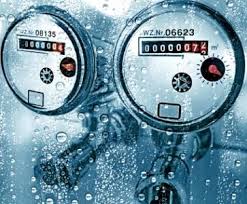
The Duncan Banner reports that the city of Duncan in conjunction with the Stephens County District Attorney’s Office, will ask Oklahoma State Bureau of Investigation (OSBI) to investigate utility department water meters and billing accuracy after numerous citizens have complained of high water bills.
City Manager Kim Meek said the investigation will look into reports of high water usage, resulting in higher billing rates.
“It is in the best interests of our citizens to have an independent investigation into this matter,” Meek said. “We are determined to identify the cause of these high bills. We will assist the OSBI in their investigation as requested.”
The movement to bring OSBI to Duncan for the investigation came from Duncan City Council members, who announced the decision at their regularly scheduled Tuesday, Aug. 13 council meeting following an almost 45 minute long executive session.
Vice Mayor Patty Wininger made the motion to authorize the city attorney to submit a written request to OSBI, asking the agency to conduct an investigation of the Duncan Public Utility Authority related to its water meters and billing accuracy of these meters. Councilwoman Lindsay Hayes seconded the motion, which was approved unanimously.
On average, according to the U.S. Geological Survey, one individual uses between 80-100 gallons a day. Under that rate, the U.S. Geological survey says the average household should run somewhere around 12,000 gallons per month for a family of four. Bills circulating in Duncan are charging for hundreds of thousands of gallons of water for some residents, including Deanna Stevens, who received bills charging for 32,000 gallons one month, 60,000 gallons the next month and a third bill reading up to almost 70,000 gallons she told News 9. Another man, Robert Vescio, was billed for 84,000 gallons of water and had to move from his home, as reported by News 9. Both residents said they didn’t have a pool or leaks after having plumbers inspect for an issue.

Some residents believe there may be an underlying issue with the software and hardware in the smart meters themselves. Reports of software malfunctioning have cropped up in other parts of the nation, including Tinley Park, a suburb of Chicago, San Diego, and Atlanta. Reports in these areas reflected the same finding: residents were being charged for thousands of gallons of water they also said they weren’t using. Again, no leaks were found present.
In Duncan, smart meters rolled out in 2010 when Honeywell implemented the smart metering network in an effort to help the City of Duncan improve conservation in the area and make collecting data a simpler process. Smart meters work by allowing municipalities using them to automatically collect electricity and water usage data from residents and local businesses.
In creating the network, Honeywell reportedly replaced existing meters with more than 9,000 electric meters and 12,000 water meters, which came from Elster Integrated Solutions. The meters use a “wireless mesh network” that incorporates into the “city’s existing broadband service” through the use of a module. The meter works to automatically collect the usage data and the module then sends it electronically to a city database.
The project reportedly totaled $14.2 million, according to Banner archives. In 2013, more than a year after the project installation completed, The Banner also reported Honeywell replaced 8,000 water modules in Duncan because the ones installed originally were deemed to not work well enough. Additional meter work in 2013 also included replacement of most of the 12,000 water modules installed and also 12,000 new meters.
Others believe it’s Duncan’s old piping causing the issues with smart meters. First time council goer Jason Waters approached council during public comment time and expressed his concerns about old ductile iron pipe and built up iron oxide causing not only health issues, but also malfunctioning inside of the smart water meters as rust contaminates the inner workings of the devices.
“Along with the billing inaccuracy and the meter reading accuracies, there are other concerns from the Duncan citizens that have to do with the water quality in Duncan,” Waters said. “I have spoken to a gentleman who previously worked at the water department and he said one of the main reasons we’re having this problem is called tuberculation in the pipes that Duncan has and that tuberculation is getting into the system — is in the system — and it’s basically rust in the iron ductile pipes we have. That rust is getting into the meters and causing problems with those meters but it’s also causing health concerns for the public, and I wonder if there have been any studies done to see what sort of health issues that could affect our people because of this rust in our pipes. Iron oxide is very corrosive, first of all, it’s a product of corrosion but it’s also corrosive in itself. By people drinking our water, it’s definitely affecting our teeth.”
Waters said while yes, there is an issue with the billing, more of the issue lies in the water system needing to be brought up to date.
“Iron ductile pipes need to be removed and they need to be brought up to date like other larger cities that have the PVC piping for the delivery of water,” Waters said.
City Council is not allowed to answer to issues raised during the public commentary period, though residents can still voice their concerns and contact city council members individually to follow up.
Because the investigation is ongoing, Meek said the city will not comment further, though they “will publicly reveal findings at the appropriate time.”
“In the meantime, citizens who believe they may have exceedingly high water usage are encouraged to visit the Utilities Customer Service Office, where an administrative review can be requested,” Meek said.






